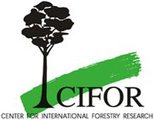The Center for International Forestry Research (CIFOR) released its July 2014 News Update containing an analysis of the outcomes of the meeting of the Subsidiary Body on Scientific and Technical Advice (SBSTA) to the UN Framework Convention on Climate Change (UNFCCC).
 July 2014: The Center for International Forestry Research (CIFOR) released its July 2014 News Update containing an analysis of the outcomes of the meeting of the Subsidiary Body on Scientific and Technical Advice (SBSTA) to the UN Framework Convention on Climate Change (UNFCCC).
July 2014: The Center for International Forestry Research (CIFOR) released its July 2014 News Update containing an analysis of the outcomes of the meeting of the Subsidiary Body on Scientific and Technical Advice (SBSTA) to the UN Framework Convention on Climate Change (UNFCCC).
The analysis considers the importance of linking climate change mitigation and adaptation and highlights the ongoing debate on non-carbon benefits in REDD+. In particular, while such benefits are seen as being important for the sustainability of REDD+, a divide remains with regard to the need for and the utility of guidelines.
The news update also calls attention to the second Global Landscapes Forum to be held at the margins of the 20th meeting of the Conference of the Parties (COP) to the UNFCCC, and the ongoing TQ20, an online process to solicit views on the most important research questions for forests and landscapes.
The update further highlights recent blog posts from CIFOR including a discussion on the need for a clear definition of forests and forest types to facilitate investments in the sustainable management of forests. The blog also debates the current approach to climate change, which seeks to address incremental changes rather than disruptive, transformative change.
Finally, the update introduces the CRiSTAL forest toolkit, developed in part by a CIFOR research project, to support decision-making in climate change adaptation. The toolkit allows forest communities to adapt local coping strategies to changing climactic conditions. CIFOR is part of the CGIAR consortium. [Publication: News Update, July 2014]